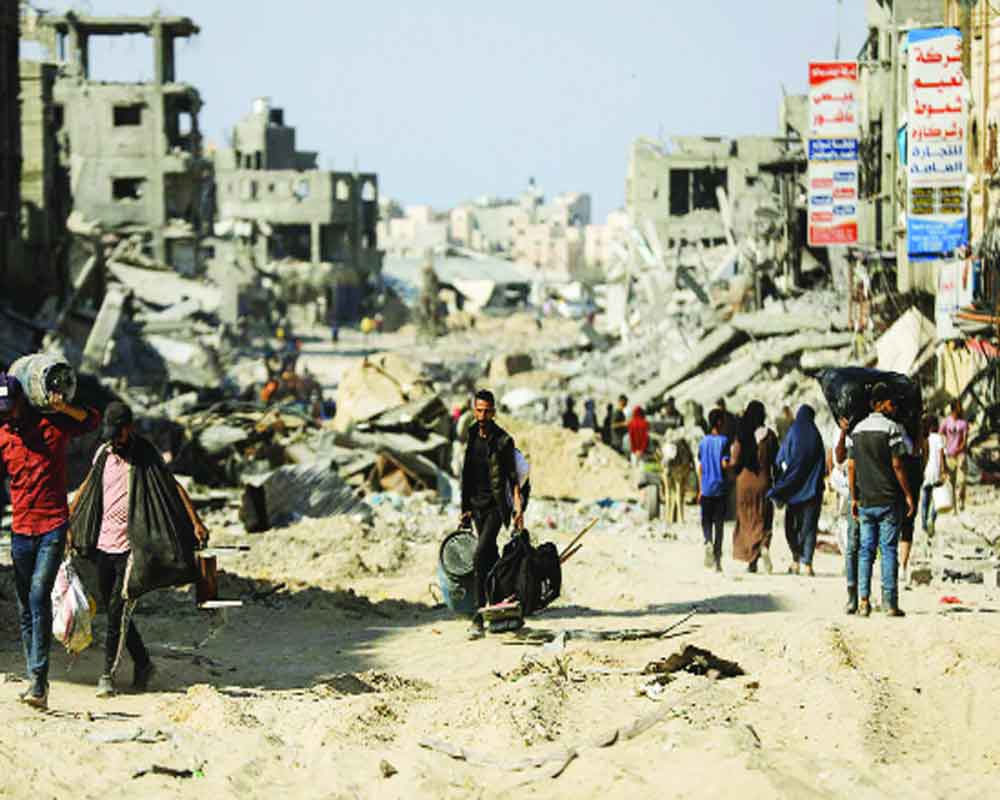Signalling a potential shift in conflict dynamics, Israel to withdraw troops from south Gaza
After six months of ongoing conflict and the resultant humanitarian crisis, there are signs that the intensity of the Gaza conflict is on the wane. After the death toll mounted to 32,000 and 75,000 people were injured, besides 75 per cent of the population forcibly displaced, Israel has announced the withdrawal of its troops from southern Gaza. Marking a potential turning point in the ongoing strife between Israel and the Hamas, the decision comes amid mounting international pressure to de-escalate the situation. Caught in the crossfire, civilians have borne the major brunt of the bombardment, enduring unimaginable trauma and suffering. As Israel begins troop withdrawal, it is imperative to reflect on the human cost of war and the urgent need for a sustainable resolution. Throughout the conflict, civilians in south Gaza have faced relentless airstrikes, shelling and ground incursions, leading to a staggering loss of lives. The indiscriminate nature of the attacks has left families shattered, homes reduced to rubble and communities torn apart. Even hospitals have not been spared. On the Israeli side, communities near the Gaza border have lived under the constant threat of rocket attacks launched by the Hamas and its sympathiser militant groups. Besides, the war has deepened existing wounds and entrenched animosities on both sides. Decades of unresolved grievances and territorial disputes have fuelled cycles of violence, making it increasingly challenging to break the cycle of conflict and build trust between the sides.
Israel’s troop withdrawal decision apparently stems from a confluence of immediate factors, reflecting both internal and external pressures. Among these, two events have played a significant role in shaping Israel’s decision. One, the attack on aid workers on April 1 served as a catalyst for heightened international scrutiny and condemnation. The attack sparked outrage and prompted calls for accountability, amplifying pressure on Israel to reassess its military strategy and prioritise diplomatic solutions. Two, widespread protests against Prime Minister Netanyahu within Israel have added to the domestic pressure for change. The demonstrations, which have been going on for months, reflect growing discontent with Netanyahu’s leadership. Meanwhile, Gaza continues to grapple with a severe humanitarian crisis, characterised by widespread poverty, food insecurity and lack of sanitation and healthcare facilities. There is now a glimmer of hope for respite from the bloodshed. However, the road to lasting peace remains fraught with challenges. Both Israel and the Hamas must demonstrate a genuine commitment to dialogue, negotiation and compromise to address the root causes. In addition to diplomatic efforts, the international community has a critical role in supporting peace-building initiatives and providing humanitarian assistance to those affected by the conflict. The withdrawal must be accompanied by sustained efforts to address the grievances of all parties involved and ensure that the cycle of violence is not perpetuated.


























